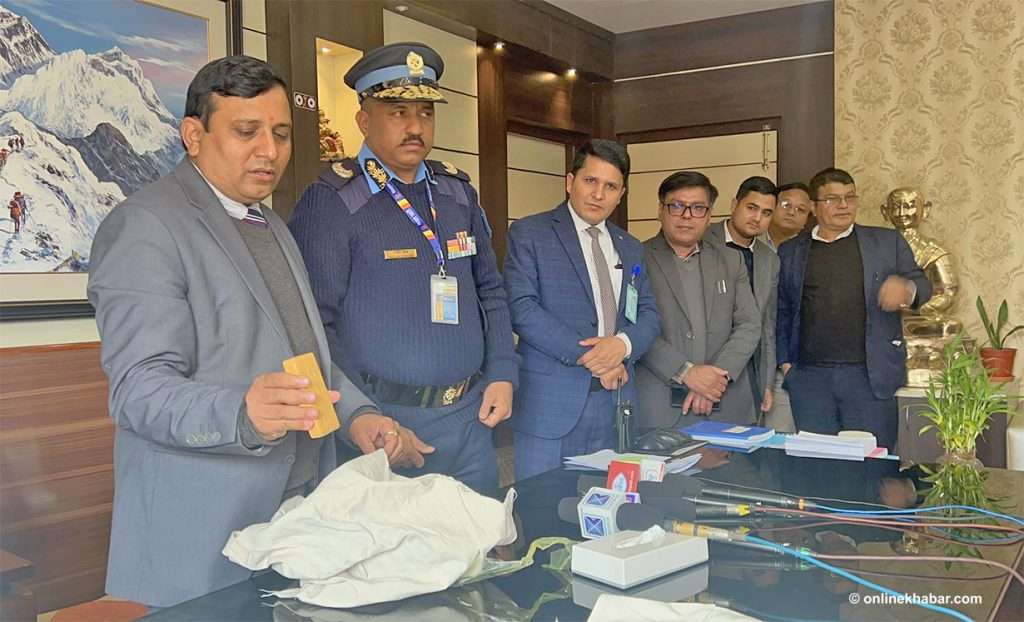Nepal roundup: Gold smuggler arrest, halts onion exports, money laundering, digital platform

Smuggling bust at TIA Kathmandu: suspect apprehended with 14 kg of concealed gold
Chandra Ghale from Gorkha was arrested at Tribhuvan International Airport with 14 kg of gold concealed on his body. The Customs Department, led by Director General Sobhakant Paudel, is investigating Ghale's identity and ownership of the seized gold. The recovered gold will undergo quality testing, and authorities are monitoring Ghale's contacts, suspecting the involvement of others in this international smuggling operation.
India halts onion exports to Nepal
India has imposed a four-month ban on onion exports, effective from November 7, to meet domestic demand and control rising prices. The move may impact neighboring Nepal, a significant importer of Indian onions. The Indian government allows other countries to request facilitated exports through a designated quota system. This ban follows India's earlier imposition of a 40 percent customs duty on onion exports in August. In Nepal, a VAT dispute on potatoes and onions led to a halt in imports and sales by wholesalers, affecting consumers. Initially planned for imported products, the VAT was extended to domestic items, leading to protests at the Kalimati fruit and vegetable market.
Nepal to be on the ‘grey list’ due to money laundering concerns
The Financial Action Task Force (FATF) has warned Nepal of potential inclusion in the grey list due to concerns over money laundering. In a letter last month, FATF urged Nepal to implement essential reforms, including amending money laundering laws and taking decisive action against those involved in major economic crimes. Nepal Rastra Bank sources highlight the urgency of implementing these recommendations to avoid greylisting by October 2024. The warning emphasizes the need for timely legislative actions to prevent classification as a financially risky country.
Asian internet coalition questions Nepal's digital platform ban, citing global practice divergence
The Asian Internet Coalition (AIC), representing major tech companies like Facebook, Twitter, and Amazon, has raised concerns over Nepal's recent ban on digital platforms. In a letter to Communications Minister Rekha Sharma, the AIC highlighted that the government's regulations, including the TikTok ban, deviate from global practices. The coalition urged for dialogue and stressed the importance of engaging with stakeholders in formulating digital platform regulations. AIC objected to the lack of industry consultation and questioned provisions requiring platform registration, warning of potential impacts on foreign investment, and Nepal's Digital Nepal aspirations.